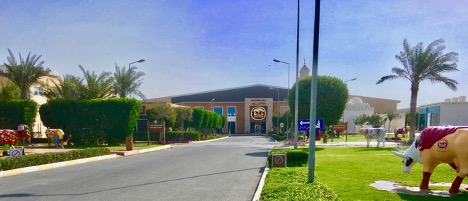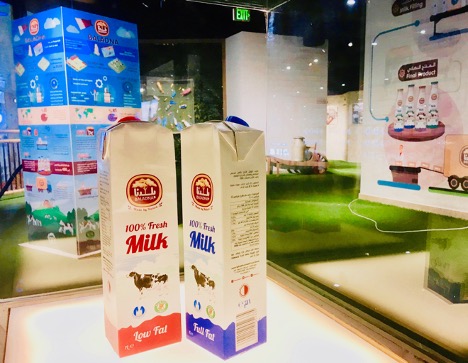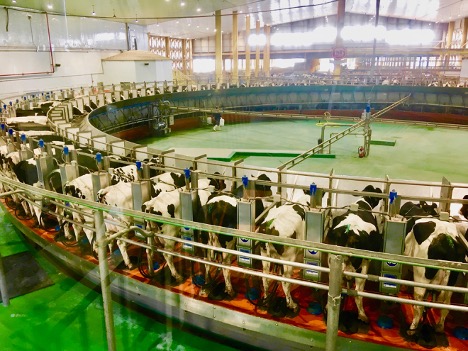
On 4 June 2017, residents of Qatar rushed the country’s grocery aisles, stocking up on as much food as they could fit into their carts or their budget. Qatar had just become the subject of a far-reaching embargo by its regional Gulf neighbors, spearheaded by Saudi Arabia and the UAE. In addition to cutting all diplomatic relations, Qatar’s only land border – with Saudi Arabia – was sealed, and air and sea travel was severed with the closing of airspace and territorial waters to all Qatari vessels and aircraft. All travel from the participating countries to Qatar was also barred. With effectively no domestic agriculture to speak of, the embargo’s most direct impact, as demonstrated in this recent Security Dialogue article, was on Qatar’s food supply, which is maintained through its air, sea, and land connections to the outside world. The country’s 2.6 million residents, many of whom flooded the grocery stores in early June 2017, were understandably concerned about their ability to secure food when news about the embargo broke.
New supply chains were established rapidly, however, as the Qatari government and its sovereign wealth fund’s subsidiary Hassad Food worked around the clock with partners in Iran and Turkey to re-source products and establish new distribution and logistics networks (see their account here). Since the beginning of the ‘Qatar-Gulf rift’ in June 2017, Qatar’s ability to quickly overcome the embargo’s impact on food has been framed as a major nationalist victory in official and unofficial discourse – a testament to the strength of the national will and perseverance in the face of hardship. This spirit is vividly captured in the local press coverage about the food situation, but especially about one particular company: Baladna Farms.
Baladna, which means ‘our country’ in Arabic, began in 2014 as a small sheep and goat farm, but was quickly transformed into a major dairy farm in 2017, when it received thousands of milk cows that were ‘airlifted’ by Qatar Airways from Europe and North America. As a Bloomberg article put it, ‘the nine-month Saudi-led embargo of Qatar has an undisputed mascot for Doha’s defiance: the cud-chewing American cow.’ Indeed, Qatar today buzzes with discussions about Baladna’s astonishing rise and its iconic status exemplifying the country’s persistence in the face of what is resoundingly understood to be an unjust and illegal assault on the country’s sovereignty.
Since then, Baladna farms has become a major nationalist icon in Qatar – symbolizing the Qatari ‘defensive’ response to the Saudi and Emirati ‘offensive,’ in which those two governments used their own monopoly of the Gulf dairy markets as a weapon – but which Qatari actors were able to subvert this weaponization of food. Baladna’s operations chief, the Irish-born John Dore explained in a Guardian article, for example: ‘The people that have shot themselves in the foot are the Saudis. If the blockade was lifted, there is so much pro-Qatar sentiment and nationalist pride that the people will buy Qatar milk, not Saudi. […] If we can make enough milk, the people in Qatar will buy it’. Indeed, the embargo stoked a massive rise in nationalism across Qatar, and it is something that ordinary residents now proudly act on by buying Qatari milk. So too can residents tour the farm itself, where they can view the company’s high-tech milking machines, peruse its museum, and watch a short film on the company’s contribution to the nation’s prosperity and success (available at the author’s website with the password ‘national’).
”[F]ood security has been a central narrative in defining agricultural, water, and energy policies in the Gulf region”
The curious rise of Qatar’s dairy industry in the wake of the ongoing embargo may come as a surprise to some, but it is actually part of a much longer history of nationalist thinking about food security or food sovereignty. Food, water, and energy have long been connected with the notions of sovereignty and security – though they have a special history in the Arabian Peninsula because of its desert environment, but also because of local memories about threats made by U.S. President Richard Nixon to use the ‘food weapon’ in retaliation for the OPEC oil embargo in 1973. Since then, food security has been a central narrative in defining agricultural, water, and energy policies in the Gulf region – even when those policies seem fiscally irresponsible and unsustainable. Yet as illustrated by the case of Baladna and the spectacular ‘cowlift’ that managed to overcome the Gulf embargo, symbolic capital can be just as important as real capital. Although the idea of a ‘food weapon’ is more fiction than fact in our globally-connected food markets, it nonetheless has important ideological implications in the Arabian Peninsula, especially by galvanizing people and policymakers to action – even if that action is rallying around the flag.

